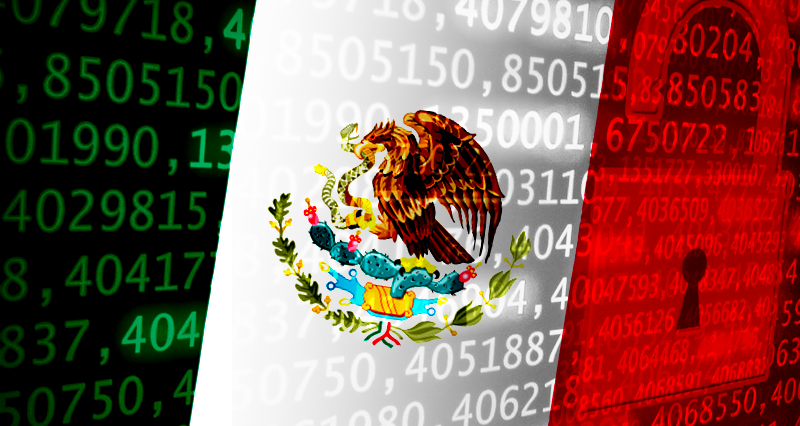By Rodrigo Guillot, reporting from Mexico City
In the past few weeks, Mexico learned of the #GuacamayaLeaks phenomenon: A group that called itself Guacamaya has hacked 6 terabytes of information from the National Defense Ministry of Mexico. This entity, that calles itself a group of hacktivists, made public opinion aware of the theft of information from the Mexican State, and began to leak, little by little, some details of the activities of the Mexican Armed Forces.
The hacker group’s discourse, with contested language that tries to refer to the Anonymous collective, Wikileaks, or social movements such as Zapatismo, seeks to refer to anti-system, anti-state and anti-corporatism sentiments. However, the collective does not cease to raise suspicions regarding the true political intentions of their activities, since the information they have decided to make public has been sent to the main Mexican right-wing media.
Information delivered to US-connected right wing media
To show the legitimacy of the suspicions regarding the group’s intentions, it suffices to mention that the hacker group first sent its information to the Latinus media, starring Carlos Loret de Mola. This digital media operates in the United States and is financed by Mexican right-wing politicians linked to drug trafficking. After Latinus made public a list of files regarding the state of health of President López Obrador, and he himself confirmed the veracity of the documents, the right-wing media began to operate a drip-feed strategy.
In this way, the partisan opposition and the right-wing media are adopting the strategy of publishing information as it suits their political forces at different national junctures. Of course, these leaks are also accompanied by different media and discursive strategies: outright lies, the use of half-truths or informative biases and the manipulation of information.
A clear example is the claim made by various media outlets, which asserted that the Mexican government purchased and used the Israeli software Pegasus to spy on specific journalists and activists. However, while Guacamaya group claims that such software was bought in Mexico in 2019, there is no evidence that it was the Mexican state that did the purchase.
Different organizations have tried to point the finger at President López Obrador, arguing that the company that sold the Pegasus software, the NSO Group, only sells Pegasus software to governments. This thesis is difficult to prove, but it is what the company always claims. However, the argument is not only insufficient, but also contradicts the claim that the Pegasus software was purchased through a network of intermediary companies. If the NSO Group does not sell Pegasus to anyone other than a government, how is it that the Mexican Government acquired it from third parties, triangulating the purchase?
What the documents published by Guacamaya Leaks do prove are links between the Mexican Army and companies dedicated to technology and computer consulting. These companies, in turn, have maintained a relationship with NSO Group. President López Obrador, however, pledged to investigate any possible evidence regarding the possibility of the Mexican Army spying on any political actor, citizen or journalist. However, he was clear in assuring that “We do not spy on opponents and what our adversaries are looking for is to equate us with those who previously governed and we are not the same and all the media”.
Explaning the hacking’s context
How to explain the context of the hacking, and the use that the right-wing media give to the act? Perhaps we can begin to understand the logic of the opposition through the figure of columnist Penniley Ramirez. Before we even getting suspicious about the Guacamaya hacking, they also leaked documents related to the Mexican Army, in this case related to the forced disappearance of 43 students from the “Isidro Burgos” teachers’ college in Ayotzinapa, Guerrero.
The context of the Penniley leak was that, weeks before, the Mexican Government made public a technical document made by independent specialists, who analyzed the forensic, digital and physical evidence regarding the case. In 2014, the then Government of Enrique Peña Nieto intended to build a false narrative about the case, causing the anger of the families and the Mexican society. Eight years had to pass before, thanks to López Obrador, steps were taken towards the truth.
The columnist Ramirez, a resident of Miami (one of the headquarters of the Latin American Republican ultra-right) published information that was only accessible to the working groups investigating the case, so that the most popular hypothesis regarding the origin of the information was a leak by a member of the technical team. As the weeks go by, and after the hacking of the Secretariat of National Defense, the hypothesis may change. Could the working groups investigating the case have also been hacked in an undetected manner?
Beyond the speculation as to how Peniley received the information about the case, it stands out that the article he published includes names of victims, suspects and informants, not only violating the safety of those people, but also jeopardizing the victims’ access to justice. A portrait of the journalistic ethics of the Mexican right wing, which seemed to be an isolated case until the Guacamaya Leaks episode happened.
With that in perspective, we should also add that the #GuacamayaLeaks campaign was launched almost at the same time as two moves by the Mexican right wing: the launching of a book, written by the ex-wife of a collaborator of López Obrador, accusing him (without any proof) of diverting cash for his political campaigns, and the regrouping of the opposition coalition into a new group: “Unid@s”. This last fact, again, points to the Armed Forces.
Armed Forces’ Reform Initiative
The reason for the rearticulation of the group of opposing parties was that a faction of the Institutional Revolutionary Party (PRI) decided, at the last minute, to support President López Obrador’s Armed Forces Reform Initiative, so that the newly created National Guard would remain in the national territory until 2028. This decision annoyed the other political parties: the National Action Party (PAN) and the Democratic Revolutionary Party (PRD), but above all the businessman Claudio X. González, who was in charge of bringing together the right-wing forces, financed by USAID.
In summary: the hacking of the Mexican Ministry of National Defense is part of a political and media coup, in which the national and US media power, the Mexican oligarchy, and the right-wing opposition parties participate. All of them, linked to varying degrees with drug trafficking, or the official powers and institutions of the United States. Their consequences, unexpected and unpredictable, have so far caused no damage to the public reputation of López Obrador or the Mexican government. But what information will continue to be published is uncertain.
Undoubtedly, #GuacamayaLeaks will be a topic of discussion from today until the end of the election campaigns in 2024. But it will not be the first, nor the last of the smear campaigns against López Obrador’s government, or against his Morena party. The Mexican left is used to dealing with slander.









Leave a Reply